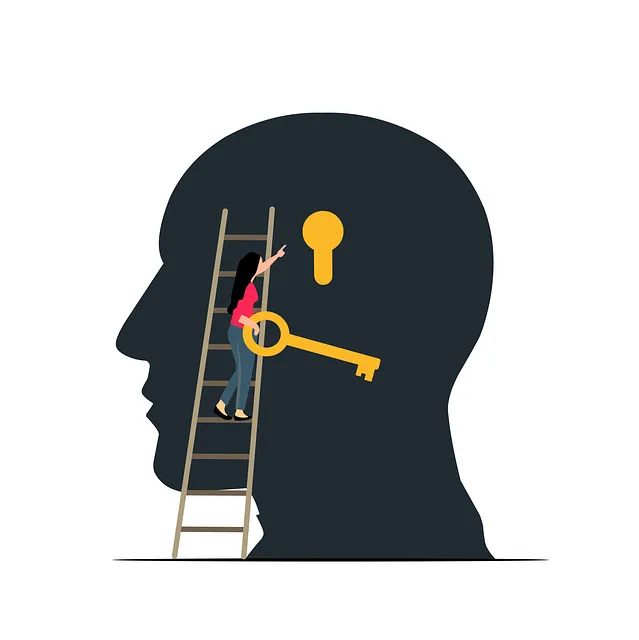Golden Kaiser Permanente mental health services excel through cultural sensitivity, integrating diverse community insights and Mind Over Matter principles. They prioritize patient-centered care, respecting unique beliefs, values, and practices with tools like Mental Wellness Journaling Exercises. Training, resources, workshops, and advocacy groups foster inclusive environments, dispel myths, and empower personalized support tailored to each patient's cultural context, ensuring accessible, effective depression prevention and improved mental well-being outcomes.
In today’s diverse society, cultural sensitivity in mental healthcare is paramount. Understanding cultural diversity ensures equitable access to quality care for all. This article explores key aspects of providing inclusive mental healthcare services, drawing from the successful model of Golden Kaiser Permanente’s mental health services. We discuss strategies for sensitizing practice, patient-centered approaches that respect cultural beliefs, and overcoming barriers to access and communication.
- Understanding Cultural Diversity in Mental Healthcare
- Golden Kaiser Permanente: A Model for Inclusion
- Sensitizing Practice: Strategies for Effective Care
- Patient-Centered Approach: Respecting Cultural Beliefs
- Overcoming Barriers: Access and Communication
Understanding Cultural Diversity in Mental Healthcare

In today’s diverse society, mental healthcare professionals must embrace cultural sensitivity to provide effective services that cater to a wide range of patients. Understanding cultural diversity goes beyond recognizing different ethnicities and backgrounds; it involves comprehending the unique beliefs, values, and practices that shape individuals’ emotional healing processes. At Golden Kaiser Permanente, mental health services are designed with this awareness in mind, ensuring culturally competent care that respects and incorporates patient identities.
A thorough Mental Health Policy Analysis and Advocacy is essential to navigating these complexities. By integrating insights from diverse communities, healthcare providers can adapt their approaches, offering tailored support for various cultural contexts. For instance, some patients might prefer alternative healing methods or have specific communication needs. Incorporating Mental Wellness Journaling Exercise Guidance as a tool can facilitate this understanding by encouraging self-reflection and allowing individuals to express their experiences in ways that resonate with their cultural heritage.
Golden Kaiser Permanente: A Model for Inclusion

Golden Kaiser Permanente stands as a beacon of cultural sensitivity within the mental healthcare landscape. This renowned organization has pioneered inclusive practices, ensuring that its mental health services cater to a diverse range of patients from various ethnic, social, and economic backgrounds. By embracing a multifaceted approach, Golden Kaiser Permanente challenges stereotypes and promotes understanding, making mental healthcare more accessible and effective for all.
The model’s success lies in integrating Mind Over Matter principles into its core strategy. Through targeted initiatives, they foster Depression Prevention, recognizing the interplay between cultural identity and mental well-being. By recognizing and addressing these nuances, Golden Kaiser Permanente not only enhances patient outcomes but also contributes significantly to Mental Health Awareness, fostering a more supportive and inclusive environment for everyone seeking mental health services.
Sensitizing Practice: Strategies for Effective Care

In ensuring culturally sensitive mental healthcare, practitioners must adopt strategies that embrace and respect diverse communities. This involves going beyond basic training and continuously educating oneself on various cultural nuances and practices. At Kaiser Permanente, their mental health services strive to deliver care tailored to individual needs, reflecting Golden principles of sensitivity and inclusivity. By integrating Cultural Competence Training and utilizing resources like the National Alliance on Mental Illness (NAMI), healthcare providers gain insights into specific communities’ unique challenges and strengths.
Effective care also involves active listening, open communication, and a willingness to adapt therapeutic approaches. Public Awareness Campaigns Development and Mental Health Education Programs Design can play a pivotal role in promoting understanding and reducing stigma within diverse populations. Moreover, Resilience Building initiatives help individuals navigate mental health journeys by fostering strength and coping mechanisms tailored to their cultural backgrounds. These strategies collectively contribute to creating inclusive environments where everyone receives empathetic, culturally responsive care.
Patient-Centered Approach: Respecting Cultural Beliefs

In the realm of mental healthcare, adopting a patient-centered approach is paramount, especially when navigating diverse cultural landscapes. Golden Kaiser Permanente mental health services emphasize respecting and understanding patients’ unique cultural beliefs as a cornerstone of effective treatment. This involves creating safe spaces where individuals feel empowered to share their perspectives, free from judgment or stereotypes. By acknowledging cultural differences in perceptions of mental illness, treatments, and healing, healthcare providers can tailor interventions to meet each patient’s specific needs.
For instance, the Stress Management Workshops Organization and Mental Health Policy Analysis and Advocacy groups highlight the importance of incorporating culturally sensitive practices into care plans. These initiatives not only promote depression prevention but also foster a deeper connection between patients and their healers. Through open dialogue and education, mental health professionals can dispel myths, challenge biases, and build trust, ensuring that every individual receives compassionate, personalized support tailored to their cultural context.
Overcoming Barriers: Access and Communication

Overcoming barriers to access mental healthcare is a critical aspect of ensuring cultural sensitivity in practices like those offered by Golden Kaiser Permanente. In many communities, especially those with diverse ethnic and cultural backgrounds, there exist unique challenges that hinder individuals from seeking support for their mental wellness. These include language barriers, where the need for culturally competent interpreters can facilitate communication and build trust. Additionally, cultural beliefs and stigma surrounding mental health issues often deter people from discussing their struggles openly.
Addressing these challenges requires a multifaceted approach. The Mental Wellness Podcast Series Production can play a vital role by providing accessible information in various languages, breaking down stereotypes through personal stories, and offering coping skills development. Similarly, initiatives focused on Self-Esteem Improvement can empower individuals to recognize and challenge negative cultural narratives about mental health, encouraging them to seek professional help without fear of judgment.
In light of the diverse cultural landscape, mental healthcare practices must embrace cultural sensitivity to provide effective and equitable care. The article has explored various aspects of this, from understanding cultural diversity in mental healthcare to implementing strategies for sensitizing practice. Golden Kaiser Permanente’s model for inclusion serves as a compelling example of how organizations can foster an environment that respects and embraces cultural differences. By adopting a patient-centered approach, prioritizing access, and enhancing communication, mental health services can overcome barriers and better serve their communities. This holistic approach ensures that cultural sensitivity becomes the cornerstone of quality care.






